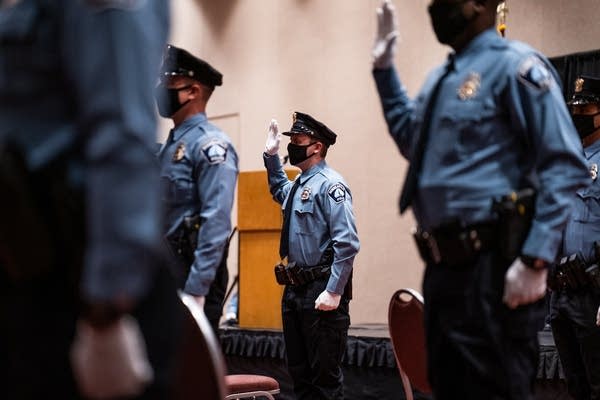After George Floyd, some cities gained ground in police contract negotiations
Many argue Minneapolis was not one of them

New police officers raise their hands to take an oath at a Minneapolis Police Academy graduation ceremony at the Minneapolis Convention Center on Friday, July 17, 2020.
Evan Frost | MPR News
Go Deeper.
Create an account or log in to save stories.
Like this?
Thanks for liking this story! We have added it to a list of your favorite stories.


